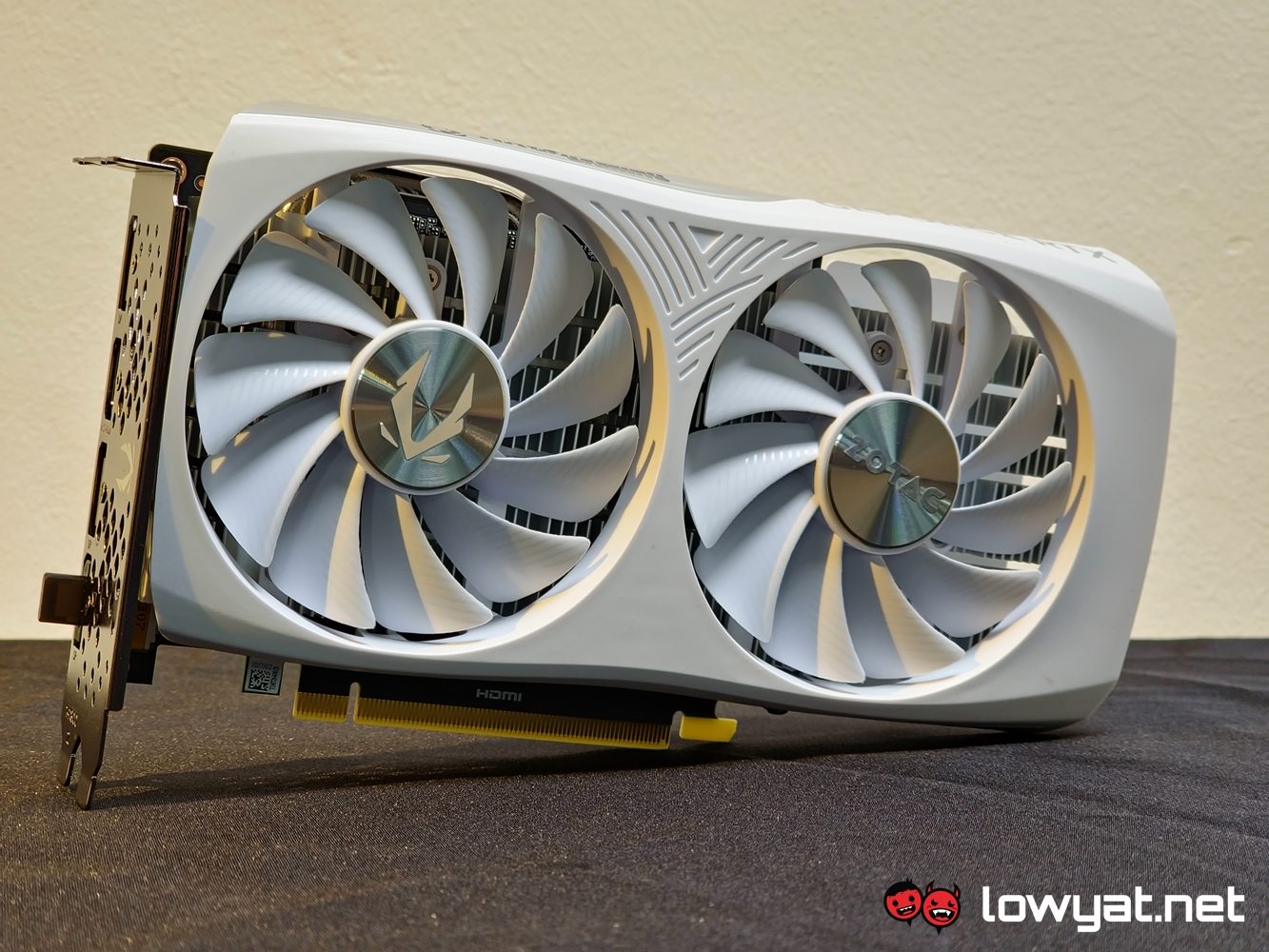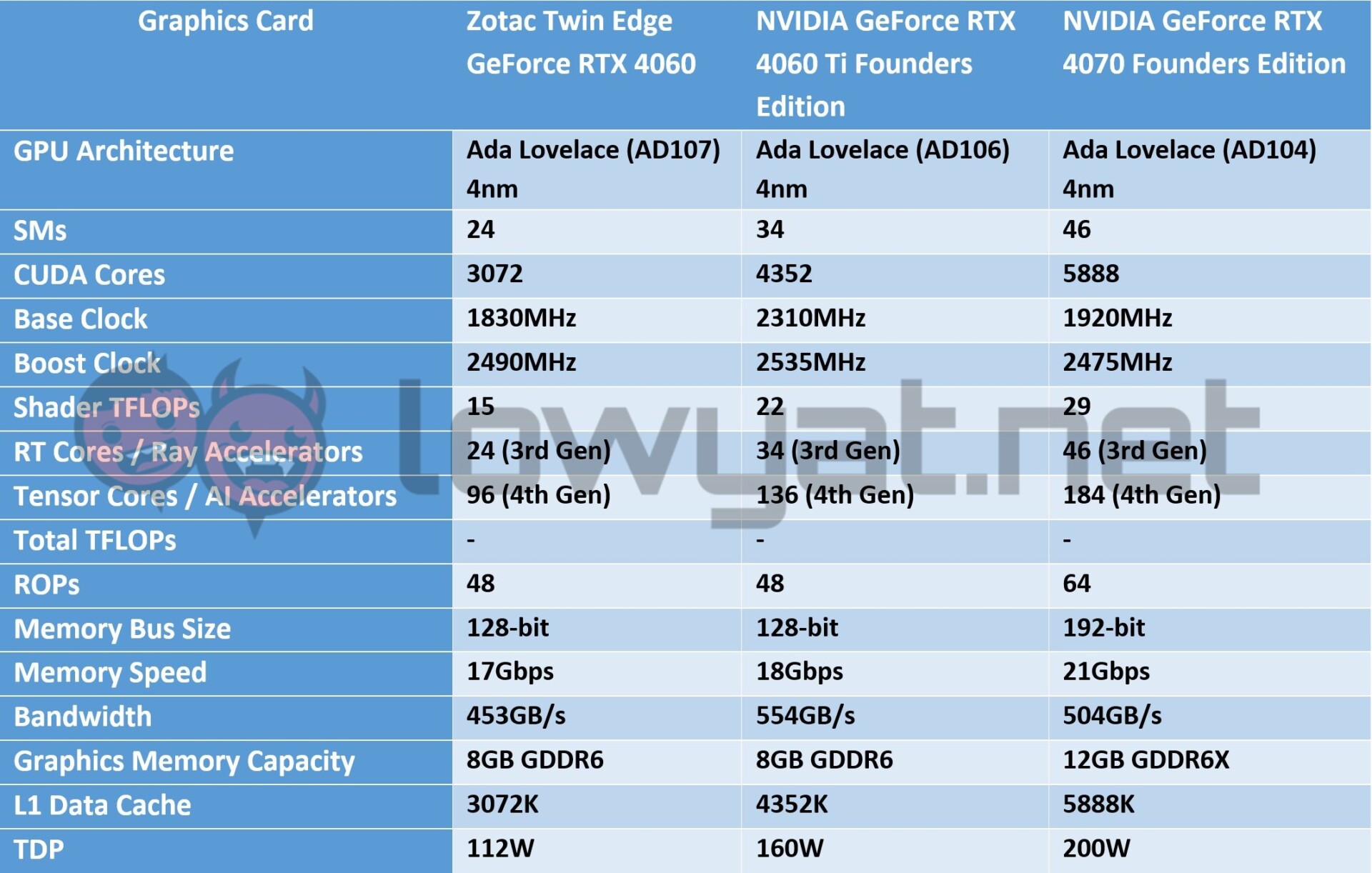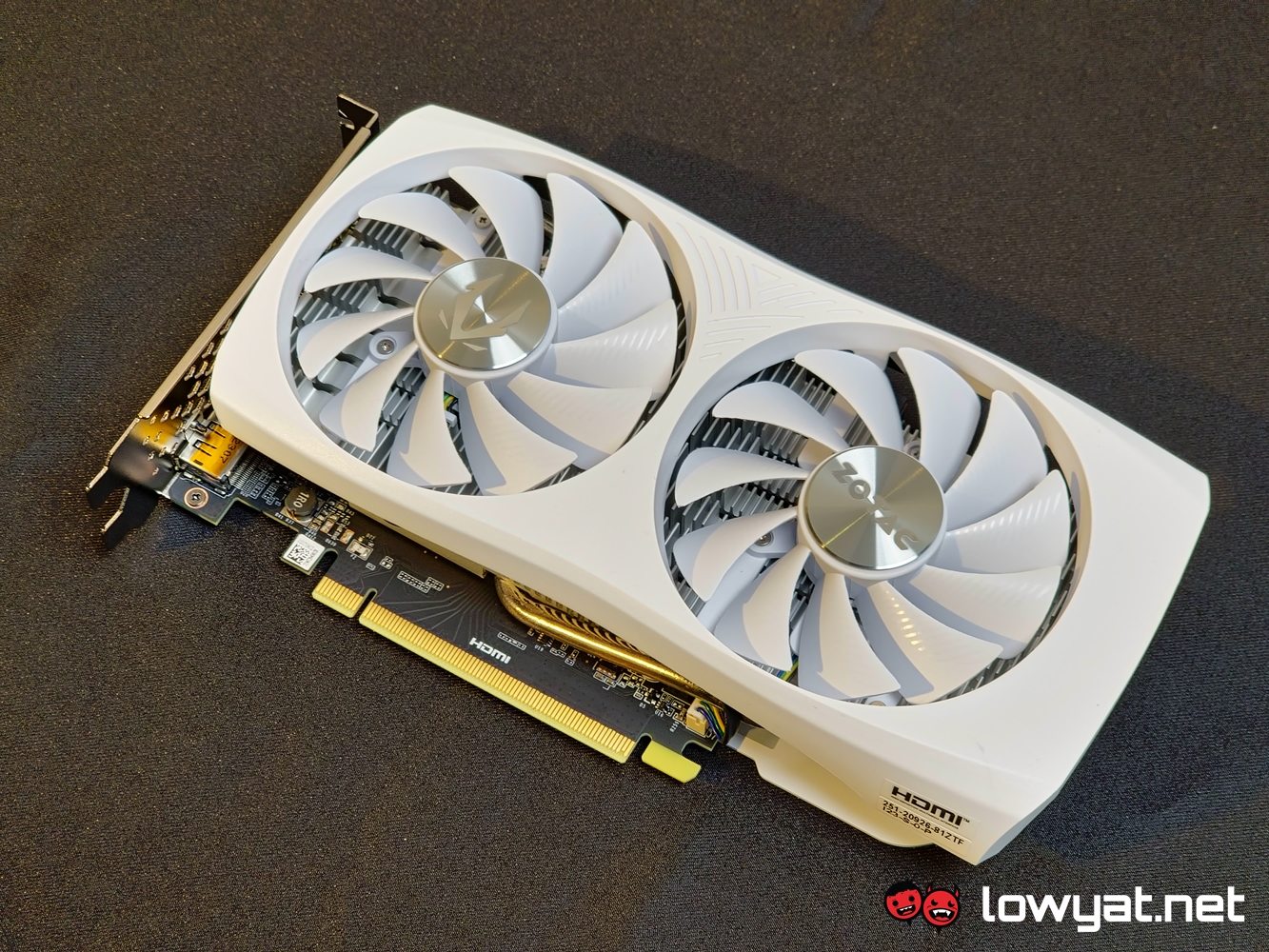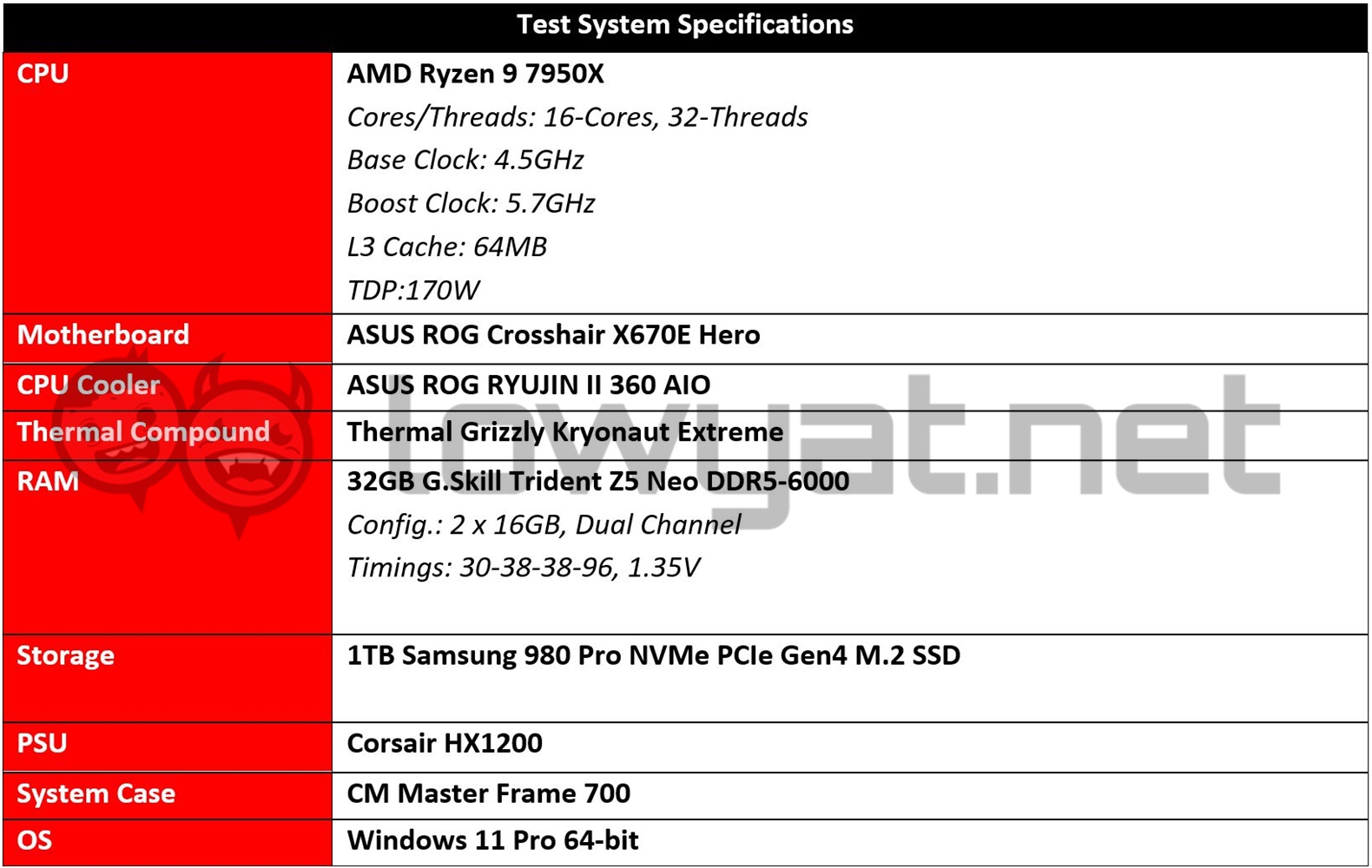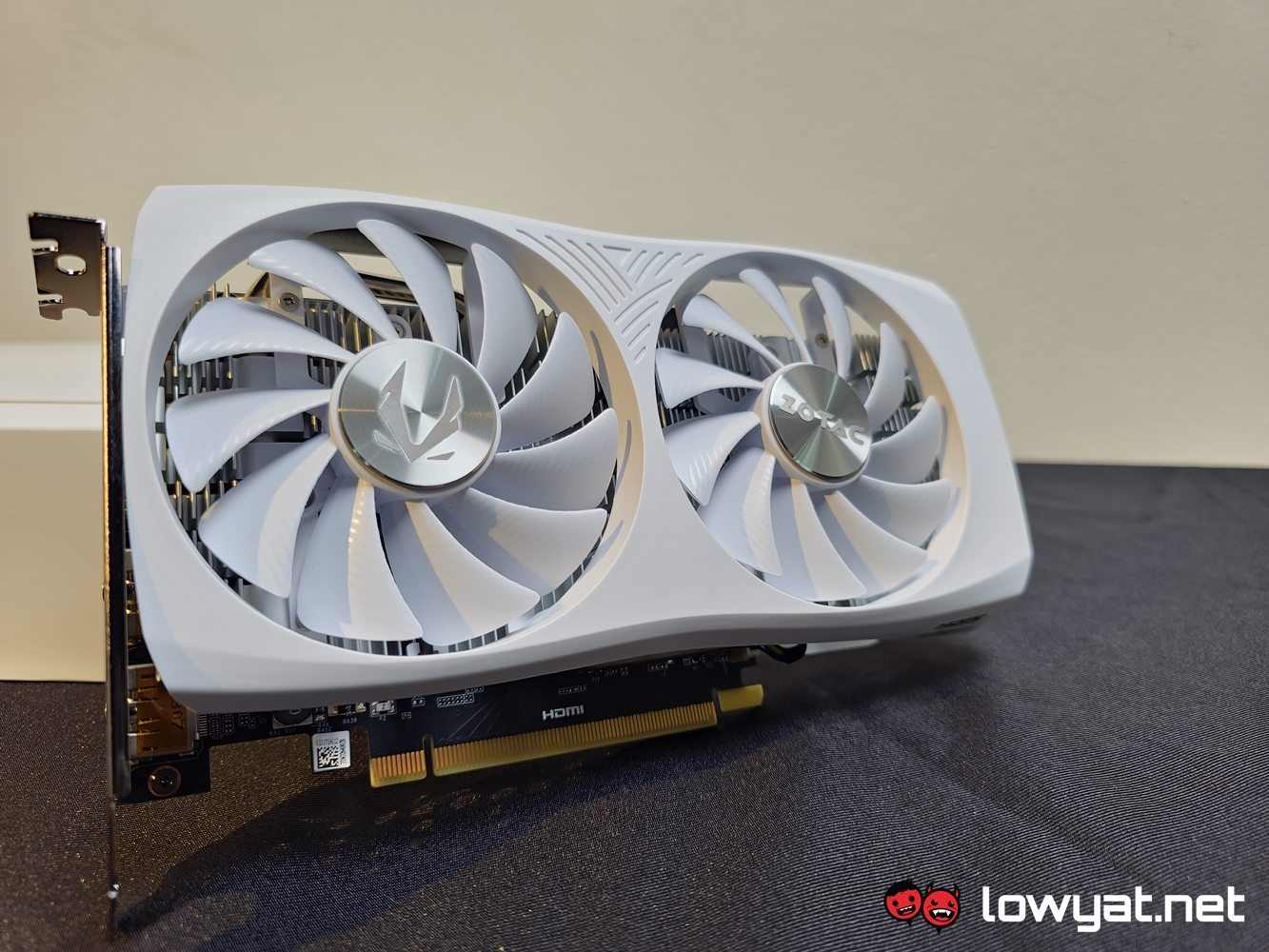The Zotac Twin Edge is the latest variant of NVIDIA’s GeForce RTX 4060 to grace our labs and also one of the prettier graphics cards that we’ve seen, thus far. But then there is the ever-prevalent question about cards punching in their respective weight class: how much better or worse is this card’s performance, compared to the other 4060s that I have reviewed, to date?
Specifications
The Looks Of It
As I said earlier, Zotac has a penchant for really tarting up its graphics card ensemble, and I don’t mean in the current chunky, blocky aesthetics that its competitors are currently fixed on. With this Twin Edge RTX 4060, the cooler shroud actually has character, thanks to the angular cuts around the edges of the cooler shroud.
Even Zotac’s branding on the spine of the cooler shroud Twin Edge RTX 4060 is very tastefully done. They are RGB LEDs but out of the box and if you don’t have the dedicated software installed on your PC, the colour that pops out is a static white and that, in my honest opinion, is a lot more pleasing to my eyes than having all the colours of the rainbows dancing ever so brightly in my face. Don’t get me wrong, I am perfectly fine with RGB lighting, but even the most jaded of you would agree that sometimes, it can become a little distracting.
On a related note, that character that I mentioned? Also present with the backplate of the Twin Edge RTX 4060. Again, simplicity is the name of the game here, with the tapered edges and the Zotac Gaming symbol is all the colour that is present in this space.
Lastly, I absolutely adore the all-white aesthetics of the Twin Edge RTX 4060. Understandably, Zotac isn’t the first or only brand to pull off the all-motif, but it goes without saying that there is an undeniable allure to products that are able to pull it off. My only concern with this, though, is just how long it will take before that pristine luster of white will last before it ultimately starts to yellow out.
Apart from the aesthetics, the Twin Edge RTX 4060 is pretty much as barebones as it gets for an entry-level GPU. It’s small and the heatsink isn’t too thick, making it perfect for small form factor (SFF) builds, although I will say that the quality of the heatsink does seem to err towards the side of thin and budget-friendly. Also, like its rivals, it only requires a single 8-pin PCIe connector for power.
The Testbench
The testbed for reviewing graphics card is still the Ryzen 9 7950X, along with 32GB DDR5-6000 RAM, with the CPU cooled with a 360mm AIO cooler from ASUS. As I did in previous RTX 4060 reviews, I will be comparing the Twin Edge RTX 4060 against the RTX 4060 Ti and RTX 4070.
In addition, I am also including the benchmarks of the RTX 4060 cards from MSI and Palit, to better see where the Twin Edge RTX 4060 gains and loses out in performance against its competitors.
Benchmarks, Power Draw, And Temperature
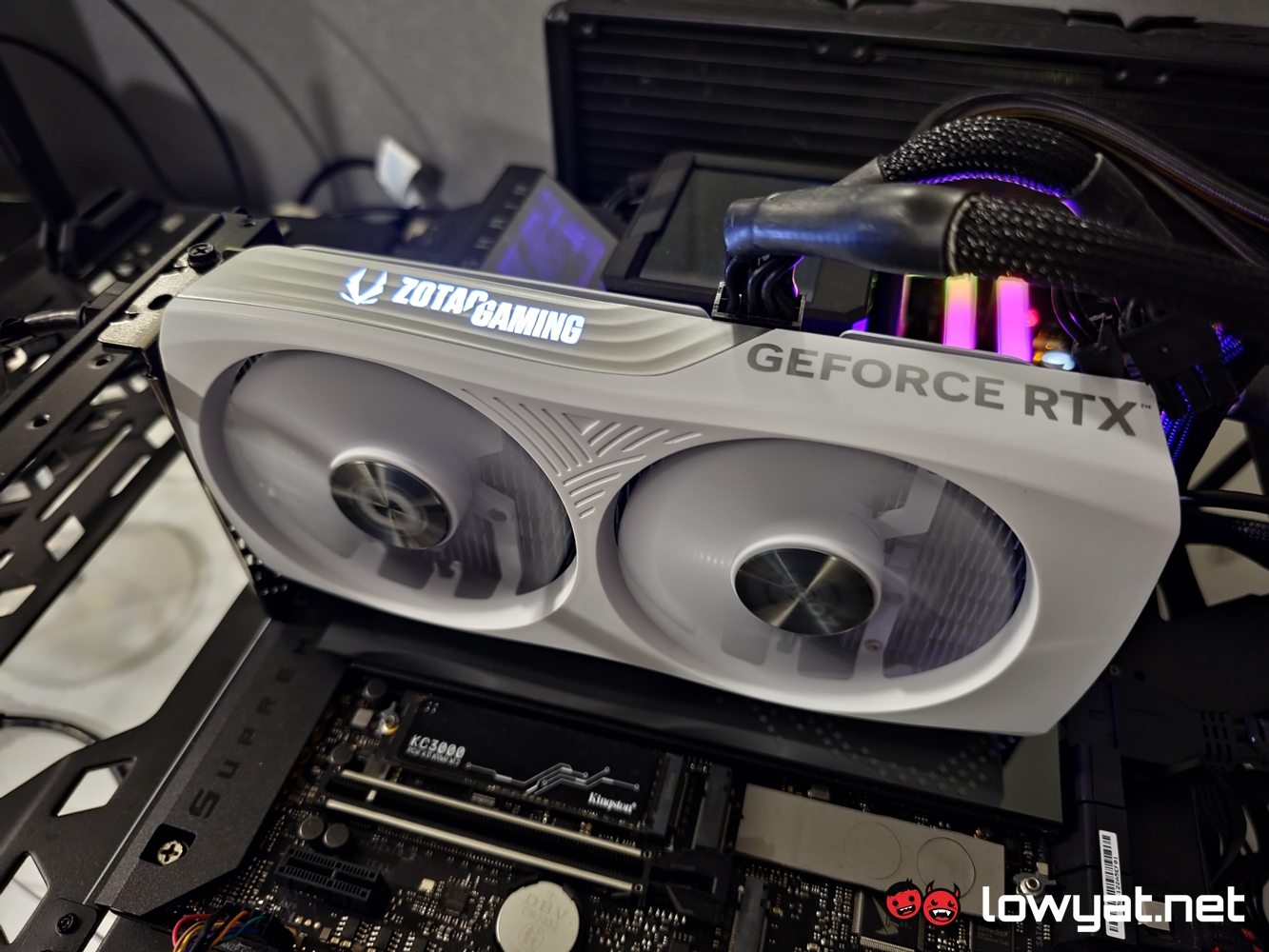 It is a little surprising that the Twin Edge RTX 4060 actually has the chops to actually pull ahead of its rivals’ RTX 4060s, though not always by a large margin. On a synthetic level, the card is pretty much on par with the MSI Dual RTX 4060 I reviewed some weeks back.
It is a little surprising that the Twin Edge RTX 4060 actually has the chops to actually pull ahead of its rivals’ RTX 4060s, though not always by a large margin. On a synthetic level, the card is pretty much on par with the MSI Dual RTX 4060 I reviewed some weeks back.
In 3DMark, the only tests in which the Twin Edge RTX 4060 appears to excel in, even by a small margin, is Fire Strike, Fire Strike Extreme, Port Royal, and Time Spy Extreme. In Unigine Superposition, both Zotac and MSI’s cards are practically neck to neck.
When it comes to gaming, the Twin Edge RTX 4060 straddles the hit-or-miss fence, gaining ground in some titles, while losing in others, and at different resolutions.
In Borderlands 3, the Twin Edge RTX 4060 really outpaces the other RTX 4060s, almost to the point that it coming right up to the performance levels of its more powerful Ti brethren. Yet, in the same breath, it actually performs far worse in Watch Dogs Legion at 1440p than MSI and Palit’s own cards.
For that matter, I also encountered an odd hiccup with the Twin Edge RTX 4060 during the review. Throughout the process, there would be instances when the card would produce this weird combination of lag and stuttering, causing this sort green light, red light scenario, where frames in any game I tested would drop to zero, and then proceed to play catch, which then leads to a rubber band effect where the frames are accelerated before stabilising.
Once again, the issue isn’t isolated to just one game but all the titles, including those that aren’t used for review. Worst, it happens at random. Resetting my testbed usually fixes it but it makes me think that this is an isolated incident with this unit, and not all Twin Edge RTX 4060 cards.
Conclusion
At this rate, I’m just going to say that you are spoilt for choice when it comes to the RTX 4060. At RM1599, the Zotac Twin Edge RTX 4060 White Edition is currently the most expensive entry-level Ada Lovelace card I have reviewed to date, but it is also a solid performer that somehow manages to strike a balance between style and substance.
The weird lag and stuttering combo notwithstanding, the Twin Edge RTX 4060 shows no other visible issue while in its element: gaming. On that note, there is little or next to no reason for me to dissuade you from picking up this card from other brands, even if its performance does tend to fluctuate above and below the average framerates that NVIDIA’s AD107 is technically rated for.
Follow us on Instagram, Facebook, Twitter or Telegram for more updates and breaking news.


